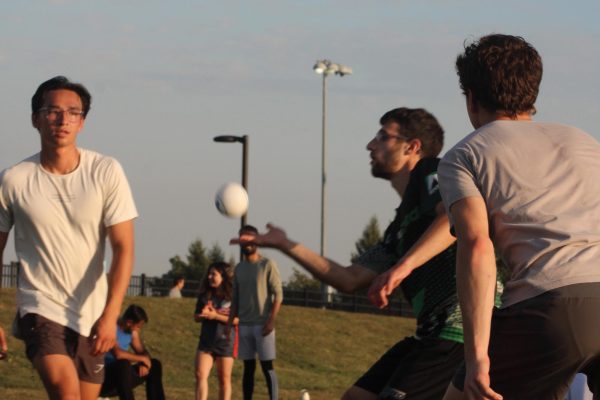Students battle with sleep deprivation
Oakland University junior, Ryan Pollex is a full-time student with a total of five classes. When he is not heading to class at 8 a.m., he usually goes to work at 6 a.m.
Non-stop schedules like this, which Pollex and many other college students struggle to keep up with, can lead to sleep deprivation, ending in a lack of focus.
“I don’t really have time for naps,” Pollex said. “Between classes, I’m busy doing homework.”
According to Graham Health Center Nurse Nancy Jansen, many students have similar complaints.
“Overscheduling, homework, work and family demands contribute to a lack of sleep in todays college students,” Jansen said. “Some people have anxiety and difficulty sleeping.”
Junior Eric Ratkowski also faces issues from sleep deprivation. Although he has eliminated caffeine and high sugar foods, as well as excercised for relaxation, he has trouble falling asleep. This can lead to fatigue during the day.
“It is honestly the whole day I am dead tired, but I cannot sleep,” Ratkowski said. “There’s always way too much on my mind at any one given time that it is just too hard to let myself go and fall asleep.”
Procrastination also leads to sleep issues, according to Jansen. Many students wait to do their work when they have time during the day, leading to late nights and difficulty winding down after mental stimulation.
“I guess it started last year, when I’d be procrastinating homework and just didn’t want to go to sleep,” freshman Tressa Collins said. “It kind of just became a habit to stay up late, which is a problem when I have to get up early.”
Collins has not used caffeine or taken naps during her first semester on campus, though she has used energy-yielding products in the past.
For students with anxiety and insomnia, working on a consistent sleeping schedule is key for improvement, according to Jansen. Limiting caffeine and alcohol, as well as, turning off electronics (TV or the computer) and avoiding late-night exercise can make a difference.
She also recommends that students develop a regular sleep schedule, going to sleep and waking up at relatively similar times each day. For students who do not have this option, for those who work late and have class in the morning, short naps during the day can help them be sure to be well-rested.
But naps should not exceed an hour.
“It’s a really important aspect of one’s health that students often have trouble with,” Jansen said. “Most people need between seven and eight hours of sleep a night.”
Students who have tried these methods without success can make an appointment with Graham Health Center for an evaluation to find the cause of their sleep issues.
—
Contact Multimedia Reporter Stephanie Sokol via email at [email protected]





